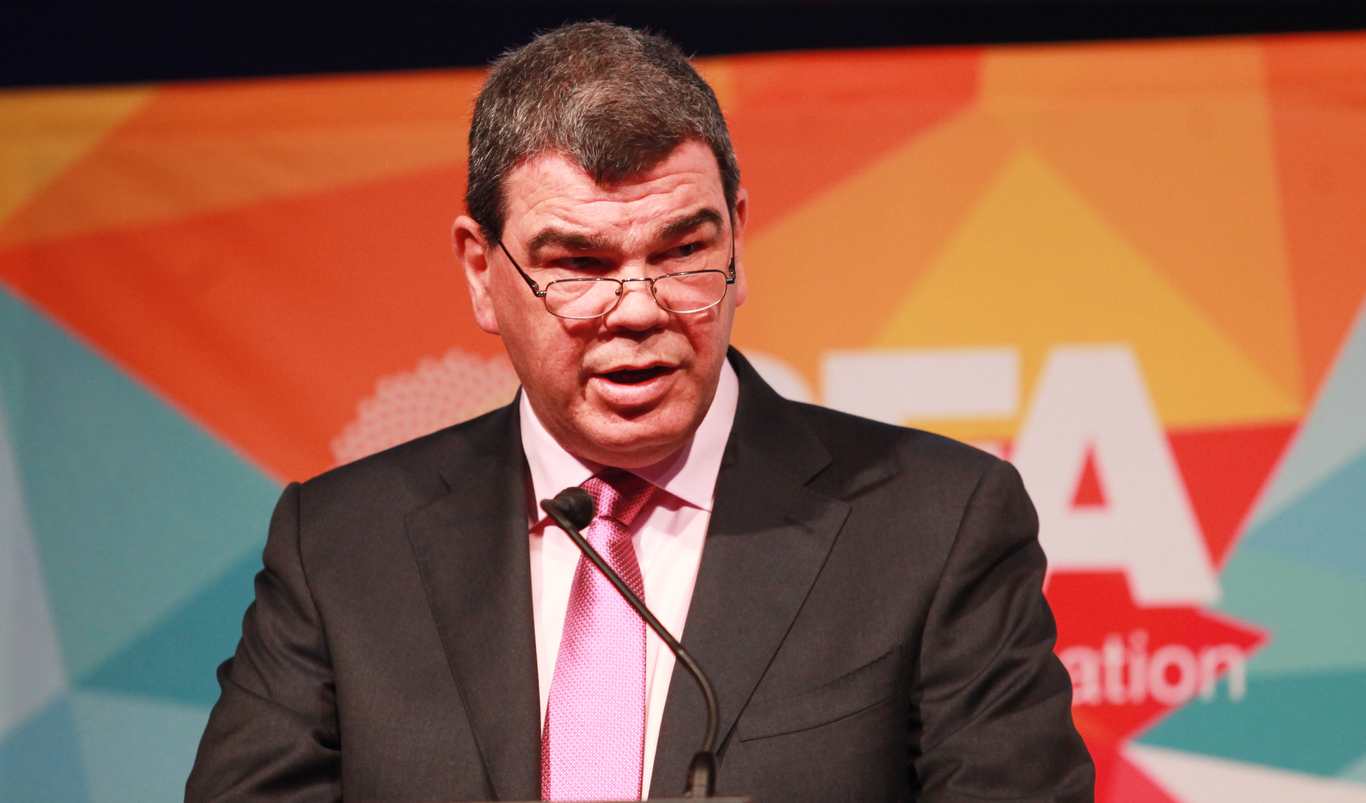Small Firms chief: 'The message we are sending is relocate to Ireland and pay more tax'
SFA chair AJ Noonan says the current regime is ‘not working’ for businesses.
IRELAND’S TAXATION SYSTEM requires “an urgent overhaul” and is sending the wrong message to companies that may want to relocate here.
That’s according to Small Firms Association (SFA) chairman AJ Noonan, who was speaking at the organisation’s annual lunch today.
“Our taxation system requires an urgent overhaul,” he told the gathering of more than 500 small-business owners.
“In terms of Brexit, the current message we are sending as a country is ‘relocate to Ireland and pay more tax’ – not a winning formula.”
Noonan said the Irish tax system “is not working for owner-managers, our employees and our future prospects”.
“Some elements in our parliament appear to be obsessed about the redistribution of wealth by taking more from those in work,” he said.
“The self-employed face an even more punitive regime with discrimination in terms of the level of income tax credit, the entry point to PRSI and a 3% USC surcharge.”
He said the SFA, the Ibec offshoot representing over 8,000 small firms in Ireland, will “continue to campaign vigorously” for a capital gains tax regime that is at least on par with the UK equivalent.
As part of Budget 2017, the government will reduce the current 20% capital gains tax rate to 10% on disposals of qualifying assets up to a limit of €1 million.
The new measure was well off what startup- and small-business campaigners had targeted after a push for the relief to apply to the first €10 million of assets sold.
Wage expectations
The SFA’s own research indicated that managing wage expectations has become the most important issue facing small businesses today.
“In an economy that is now deflationary, in which businesses are finding it impossible to get price increases, this is extraordinary and is being fuelled by unrealistic demands in the trade union movement, both public and private sector,” Noonan said.
He said 60% of SFA members expect to give pay rises this year, with the average salary increase being 2%.
“In the discourse about restoration, there is no consideration of the competing demands on the public purse, and the absolute reality that these pay increases will be funded by either increased taxation or reduced public services,” he said. “The quality and efficiency of public services must be part of this debate.”
SFA research from earlier this year suggested that many small firms still have a bleak view on the health of their companies with just half saying their business is improving while almost 20% said it is getting worse.
Noonan called on “immediate government intervention” to help businesses navigate the fallout from Brexit.
He said the government needs ”to become obsessive about our cost-competitiveness and tax-competitiveness vis-à-vis the UK.”







